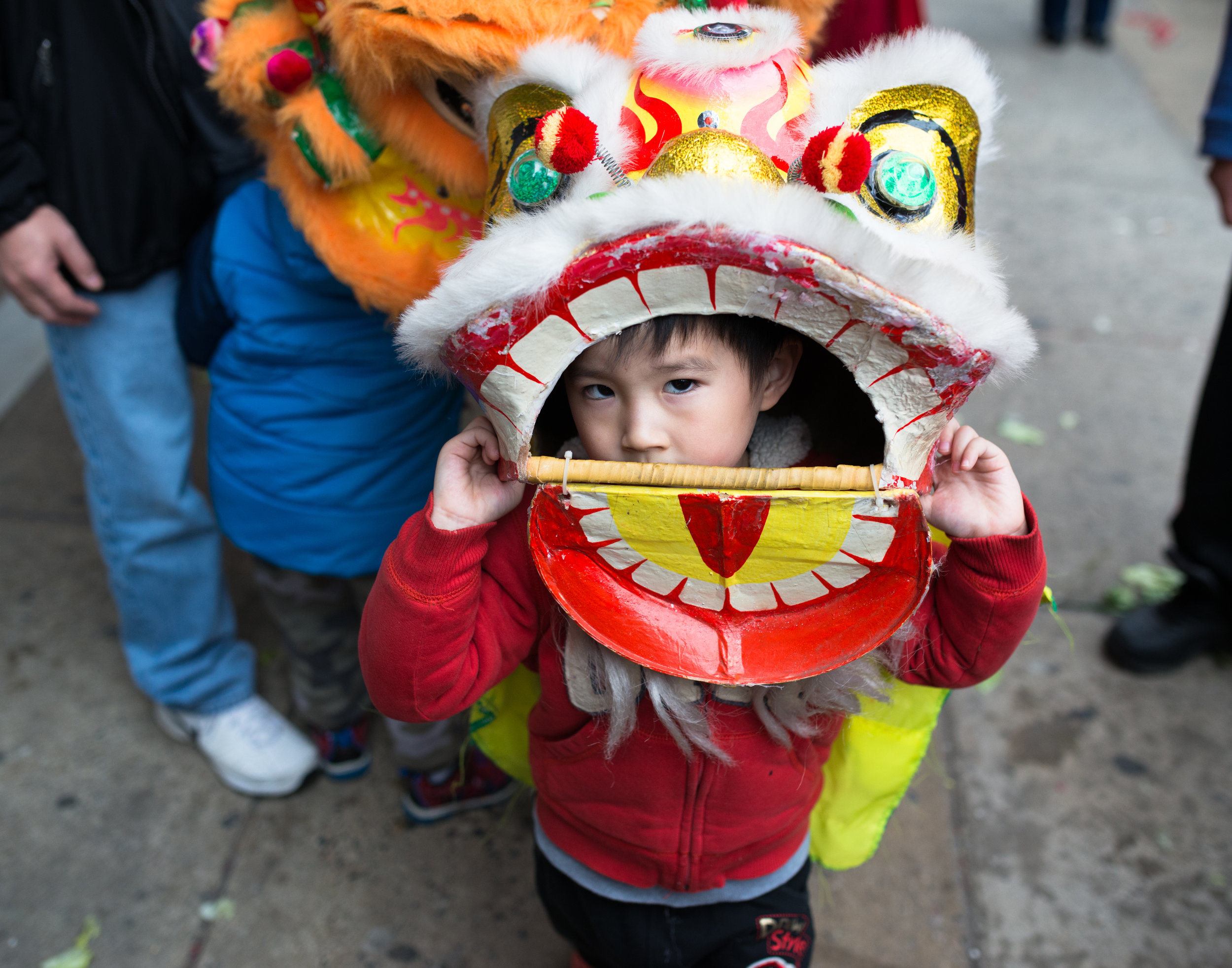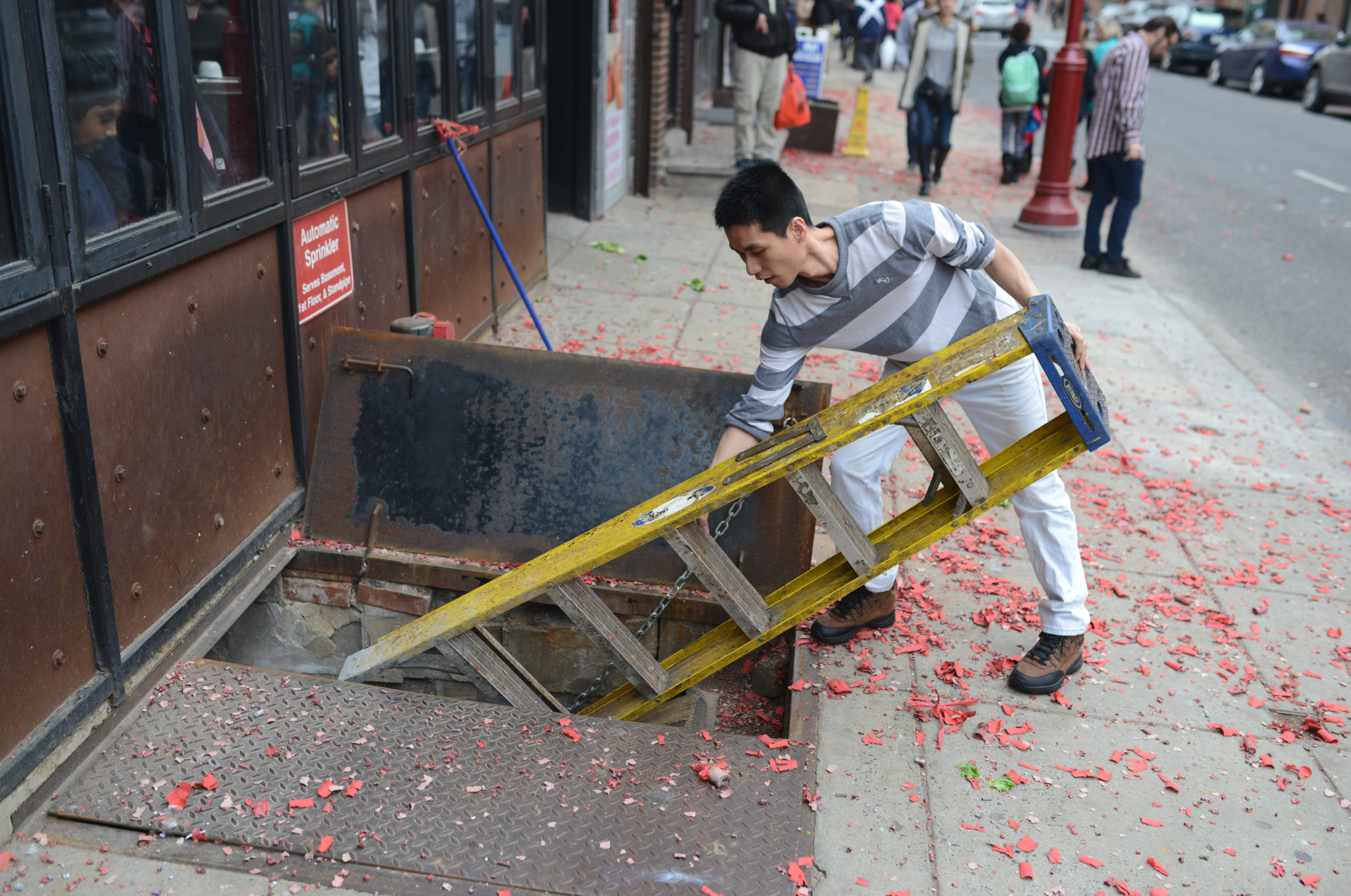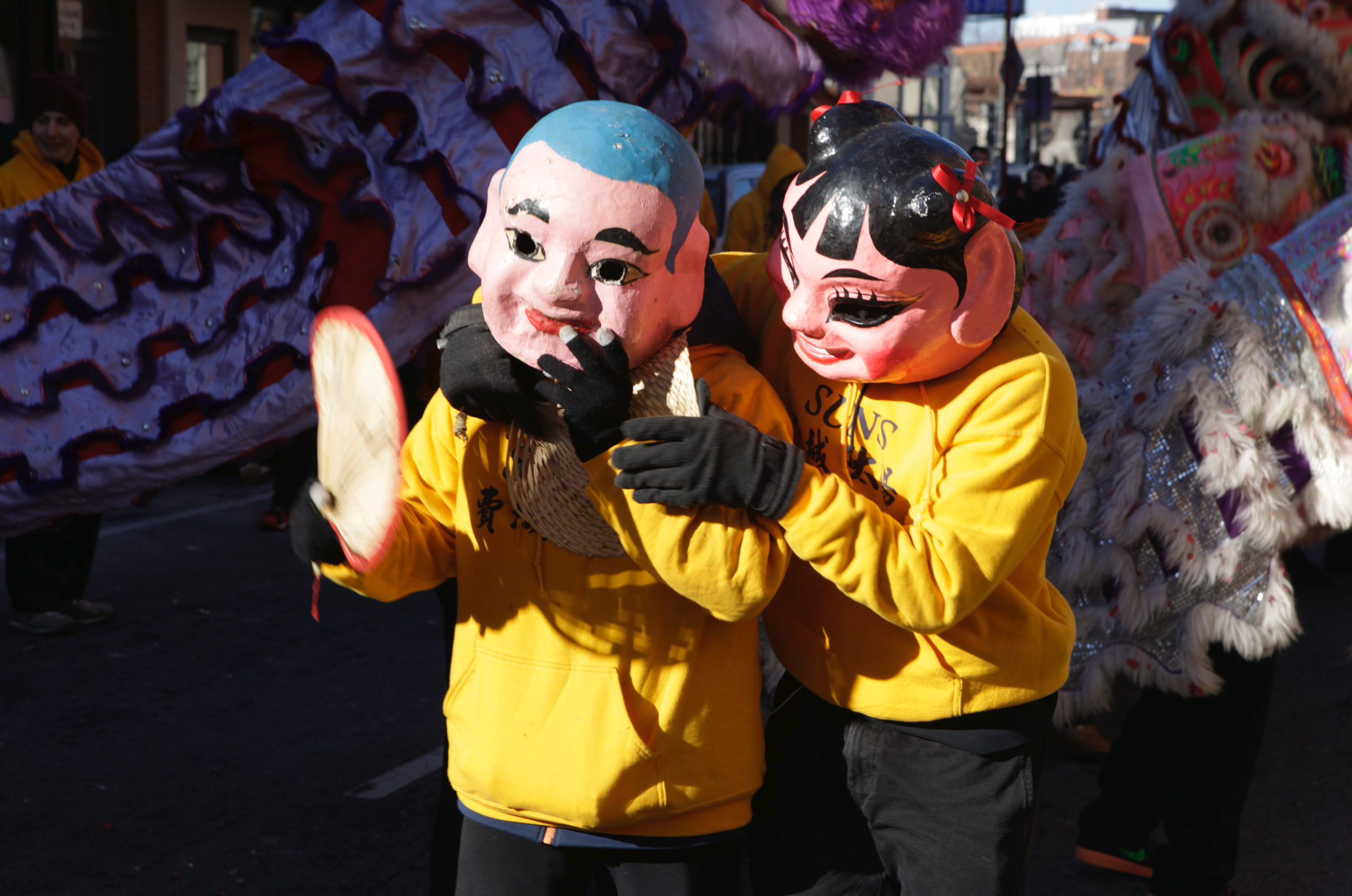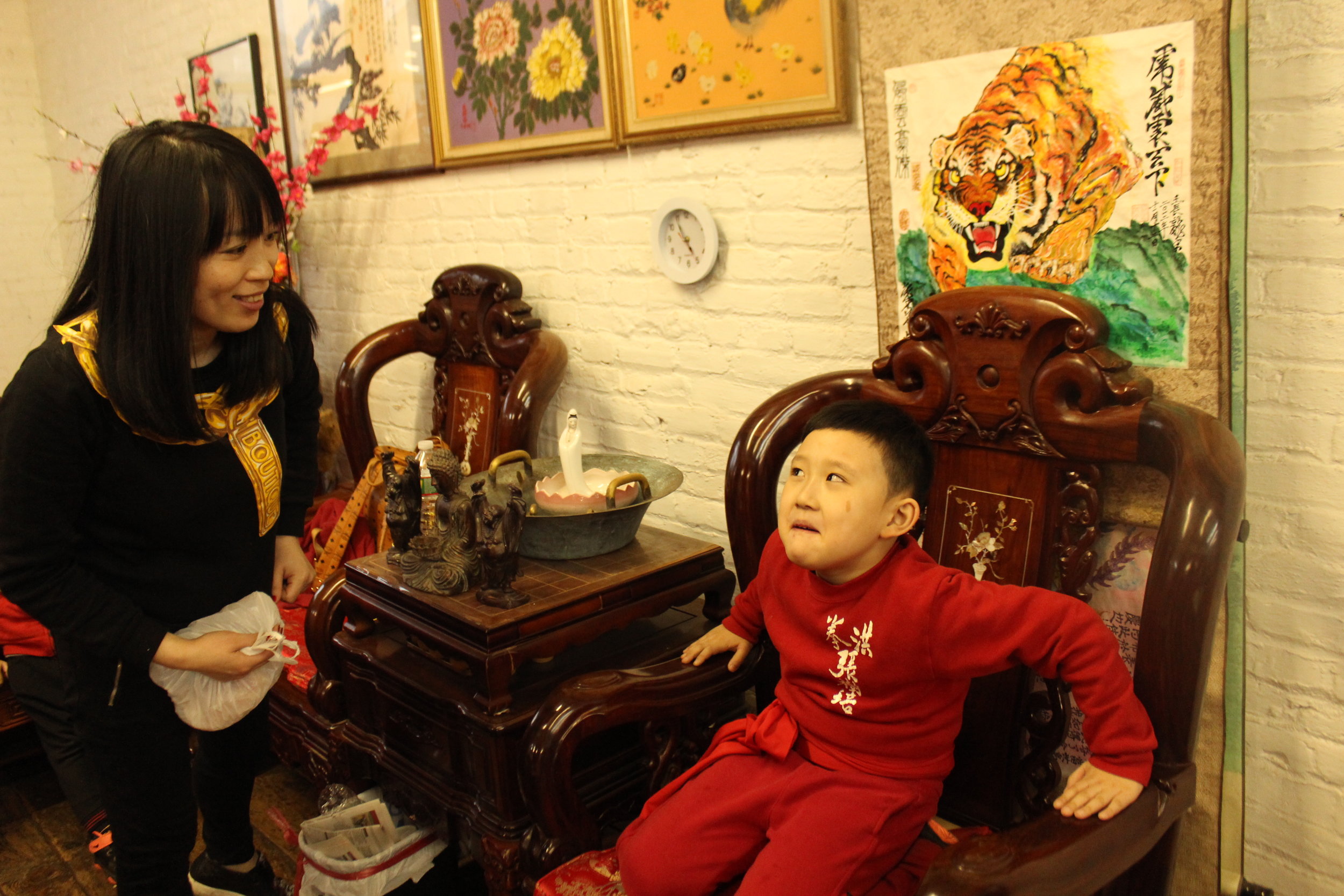An immigrant’s journey
Introduction:
“Destination: Philadelphia” is the result of a collective project inspired by our concern for current social issues and the interest in film and photography as aesthetic and cultural expressions. The exhibition features a documentary and a number of photographs accompanied by several interviews. “Destination: Philadelphia” takes a closer look at the lives of first and second generation immigrants, particularly in the Chinatown area in Philadelphia, and compares these two groups in terms of the change of identity and sense of social belonging. Angle aims to capture a side of immigration that is often overlooked or disappears too quickly in the great melting pot of America. “Destination: Philadelphia” explores the subtleties of the morphing of many individuals in the process of settling into a new culture—their excitement and discomfort, hopes and nostalgia, and the dreams realized and shattered. Through this exhibition, Angle hopes to shed different light on the current conditions of the immigrants and offer new possibilities to the existing understanding of immigration.
Anonymous / Origin: China
“I came to the U.S. as a refugee because I disliked the Communist Party in China. Before then, I went to Cuba, and left China only to find out that Cuba was also a communist country. I finally arrived in the U.S. through Canada. I first arrived in Detroit, and then took a 46-hour bus to Philadelphia. I decided to settle down in Philly because of its lax immigration policies and more welcoming attitude towards immigrants. I started my life in the U.S. working in a hotel in Chinatown. Around 90 percent of the people there spoke Cantonese then, compared to today’s 50%. I have two sons in San Francisco and three granddaughters in Philly. I advise you students to study hard, seize the day, and enjoy life.”
Xu Lin (林旭)Origin: China
“I am a restaurant owner from Fuzhou where I used to fish and sail. I see the importance of keeping the Chinese identity, which is why I started a dragon boat racing team. Every June, hundreds of high school kids join the team and participate in the race. I was also in charge of Asian Americans United, an organization that founded a school for Chinese immigrants and aimed to help them adapt to the US culture. I think remembering and preserving tradition have a lot to do with confidence.”
Xiang Long (项龙)Origin: China
“I got into tech media when I was in middle school in China. At that time, I was a writer for Sohu. As an international student studying abroad, I see myself more as a rule-breaker, not a chaser. I started this internet cafe business last December. At first, we only hired Americans and we never spoke Chinese. I really wanted to create a community for people who were interested in video games. Later, however, I found that this was not only a place for gamers but also a place where Asian and American cultures would mix. I think, with video games, there are no cultural barriers between people, and shy people become more open when talking about things they are more comfortable with. I also really like my employees. Oh, I actually think some of them are overqualified. They came here not just because of work but also for their love of video games.”
Pho Saigon Origin: Vietnam
“Actually, I don’t even work at this restaurant. I’m just a friend of the owner and I help him run the restaurant while he's out. Anyways, I moved to the U.S. when I was eight from Vietnam. I now have two sons. I believe that immigrants' resilience depends on their outward behavior -- if they come as confident, they will survive, but if they come as timid, they won’t. Coming to the US was hard. I came when I was 8 or 9, and at that time I didn't know anything -- not even the alphabet -- and I was immediately put into an American school. I couldn't understand what the American kids were saying in school. I didn’t even know how to communicate with them. However, I’ve seen that Americans have a different worldview from that of the Vietnamese and the Chinese. During the first few years, I went back to Vietnam a couple of times. It’s strange that now I can say I don’t miss Vietnam at all, even though I still have a few uncles there. I’ve learned everything in America. When you go back to China or Vietnam, it's kind of dirty. You don't want to stay there.”
Lei “累”
Origin: US
“We moved around a lot. I was born in America, and I moved back to China for a while. Since then, I’ve never gone back. At first, I lived in a very small place in America. Since my parents did not speak English well and did not mingle with Americans, we ended up moving to Chinatown in Philadelphia. Here, my dad works in a restaurant and my mum in a Mahjong place. They only hang out with Fujianese people as they do not speak other dialects. I don’t take money from my parents because I don’t want to owe them anything. I relied on my friends for a while because I had no money, but later on I realised I shouldn’t rely on anyone. So instead of going to college, I chose to work full time here.
During high school, I had to wake up at 5am to catch a bus every morning because I lived far away. I hung out with different kinds of people so I saw the differences between groups. In Chinese culture, it feels like there’s more gossip around, whereas in American culture, it is more carefree. It really depends on which group you want to belong to. You just choose to blend in and become more like that kind of person.”
Cindy / Origin: Korea
“I’m 45 years old right now. I first came to the U.S. in 1989 for high school and I graduated from Drexel in 1992. First, I was working as an accounting manager in H-mart and then a property manager in Abu Dhabi. Somehow, I opened a Korean store in Chinatown in August last year, but I don’t feel like I’m part of Chinatown. I live an hour away and I still need more time to adjust myself. I’m too busy right now starting up and running the store and I don’t have time to socialise with other store owners. Language is also a big barrier for me. I’m the only Korean store owner here. I hired a couple of Chinese students to help the situation. I found a worker who speaks English, Korean, and Chinese, so she’s been a big help. I met my husband in high school in Korea. We went to Catholic Church together and were friends. I moved to America later, but I’d meet him every time I visited Korea. We are now here together with a son. Every year I go back to Korea to visit my husband’s family and to teach my child Korean and Korean traditions. I’m lucky to live in a community where there are Korean churches and schools. Children here usually take korean lessons after school and sometimes their parents let them play together.”
Joan Huang Origin: China
“I graduated from Swarthmore a year ago and my parents immigrated here in fear of their lives. They were both well known writers who outspokenly opposed the government. My family background was poor--both of my parents grew up in a village in China. We didn’t have the same resources and protection as the upper-class people did, so our political stance was dangerous. I used to be a queer activist. However, several disheartening experiences in college made me feel dispassionate and less motivated about the cause. I stopped advocating and hosting workshops that were not effective as I’d hoped, for it was stressful and a waste of time. I turned to my interests, such as queer and gender history in Asia and cooking. Fusing and borrowing from different cultures with the help of friends, such as my Mexican housemate, allow me to explore and understand different histories.”
Julie
Origin: Vietnam
I came to Philly from Vietnam with my brothers in 1987. My parents are Chinese and we moved to Vietnam when I was young. I couldn’t go to a good school because I was not born in Vietnam. My English isn’t bad because I went to Philippines to study in an English program that my brother sponsored. But people who came by boats didn’t have the same opportunities so they had a harder a time living here. In South Philly, it is a lot easier to open a Vietnamese restaurant because we have a larger community here and there is less competition than in Chinatown. We also have a very united group here, both the Chinese and the Vietnamese work and hangout together.”
Mr. Lin
Origin: China
“I was a Chinese teacher in China, then I went to study IT in Japan for five years in 1988. I learned Japanese there and was amazed by their work ethic. I went back to China in 1992 to work as a translator in a Japanese firm. I moved to Chinatown in New York with my wife in 2007 and ended up in Philly because of my work. But our daughter couldn’t come because of Visa issues so she remained in China. She is now married and now has a kid. She is probably happy. I think America gives me more individual freedom but less options for work. Now I work here in a restaurant for a construction firm 6 days a week. I want to be friends with the Americans but communicating with them is hard because of their cultural differences, even though my English is not bad. I’m also getting old.”
Xian Shen / Origin: China
“It has been twenty years since I first came from Fujian. I worked in a temple before in China and I want to spread Buddhism to America. It was hard when I first came here, especially because Buddhism is not very popular here in the U.S. I like the U.S., but I also like China. China is like a home for me, and U.S. is where I work. I can speak Cantonese, Fujianese, Fuzhounese, English, Mandarin… A lot of people think that we do not have much work to do as nuns, but in fact I wake up at 4 every morning, recite scriptures, have breakfast, clean the floors, open the door at 8 and finally close the temple at 7. Our temple is fortunate to get support from local chinese immigrants since the government does not give us any funding.














